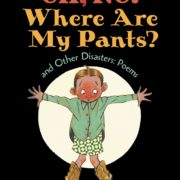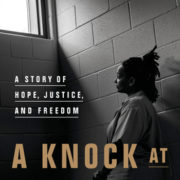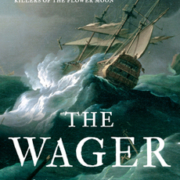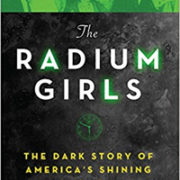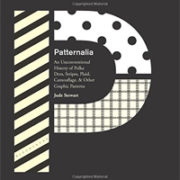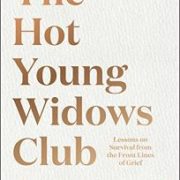The Friday Afternoon Club: A Family Memoir by Griffin Dunne
The celebrity memoir. The decision to read one is subject to a big-time conditional: the celebrity in question. Fairly obvious condition, I know. Until recently, I don’t believe I had read a single celebrity memoir, deeming them somewhat akin to “royal watching,” a waste of one’s fine time. This opinion, however, evidenced my own limited thinking, for I just devoured a celebrity memoir. And it turns out the big-time conditional was that it be written by a celebrity I had never heard of.
While I may not have heard of Griffin Dunne, I certainly knew of his aunt, the late author Joan Didion. She was the hook that led me to giving The Friday Afternoon Club: A Family Memoir a go. There she is on the cover, along with other recognizable faces: her husband, writer John Gregory Dunne, and his brother—and Griffin’s father—Dominick Dunne. The whole lot of them look sufficiently WASPy. The Dunnes, however, were Catholic. It didn’t matter that Dominick grew up across the street from the Hepburns (both Katherine and Dominick’s respective fathers were noted physicians) in a moneyed Connecticut neighborhood. The Protestant Hepburns didn’t speak to the Catholic Dunnes.
Griffin’s mother, Ellen Griffin, was born to an even wealthier family, and Griffin’s retelling of her family history had me beguiled right from the jump. Griffin and his two siblings also grow up (surprise) quite privileged. There’s still plenty of loss and tragedy along the way, with Dunne writing an affecting account of what transpired. He’s a natural storyteller who does justice to his family, even as he lays it all out there. Still, I’m not ashamed to admit that what had me flying through the pages was the sheer volume of famous names that roll out in story after story.
Dominick grew up enthralled with movies. He also had a natural inclination to be a gadfly around famous people; so it’s not surprising he ended up in the entertainment industry. In New York City, Griffin’s first babysitter was Elizabeth Montgomery. Humphrey Bogart persuaded Dominick to relocate to Hollywood and stage-manage a show, ushering the Dunnes into the Beverly Hills set. Peter Lawford was a next door neighbor. When dining out, it was not unusual to see Jimmy Stewart at one table and Alfred Hitchcock at another.
It’s a reminder that Hollywood is, after all, a business. With Dominick working as a television and film producer, it meant his colleagues were some of the most famous names from the Hollywood of yesteryear. At one pool party, a young and overeager Griffin jumps into the deep end and promptly sinks to the bottom. A hand grabs him and places him at the pool’s edge. “A wee bit early for the deep end, sonny,” says Sean Connery, his rescuer.
But growing up around the entertainment industry also means you behold the reality behind the camera. When Griffin visits the Gilligan’s Island soundstage, he sees Bob Denver—Gilligan himself—fly into a rage over a “last-minute rewrite and upend a watercooler onto the floor.” And it also means that the famous will see you. In the case with the Dunnes, Dominick’s appetite to be around and impress celebrities was clearly too voracious. When entertaining guests, the Dunne children were often called upon to make an appearance before going to bed, the brothers bowing—replete with matching robes— and their sister curtsying. Years later, Dennis Hopper would tell Griffin that it was the saddest thing he ever saw.
Ellen and Dominick’s marriage ultimately failed. His excessive drinking was a contributor. And the fact that he was a closeted homosexual was certainly a factor. He may have been closeted in Hollywood but not to Ellen. As a child, Griffin was unaware of this dynamic within his parent’s marriage. But, looking back, he now understands why instead of receiving the German shepherd he asked for, his father gave him two poodles with pom-pom tails; one of which was named Wilde, after Oscar Wilde.
Griffin was sent to a few boarding schools. His father eventually blew up his career and left California. Griffin describes his brother, Alex, as extremely intelligent but whose only “ambition was to be cleansed of all ambition.” As a young adult, Alex is said to have had “a unique relationship with reality.” If Alex heard a particular song on the radio, he would become quite agitated that the artist hadn’t properly credited his contribution. He would write letters to the offending musician, detailing how he didn’t want royalties, just a simple “thank you.”
It was Dominique, their sister, who was the lodestar of the family. They all adored her. When Griffin and Dominique both began their acting careers, it was pretty much a given that she was the most talented of the two. And as their mother was losing her mobility from the effects of multiple sclerosis, it’s Dominique who did things like “steal” Robin Williams away from a party and have him perform some comedy for a bedridden Ellen.
In 1982, all the male Dunnes were living in New York City. Griffin pursued an acting/producing career as Dominick worked on a novel. Both were trying to keep Alex from sliding into madness. It was also the year they received word that Dominique had been placed on life support after having been strangled by an ex-boyfriend. They fly back to Los Angeles, and it’s beyond wrenching to read of this family reuniting only to take Dominique off life support. When it’s time to say goodbye to his daughter, a distraught Dominick whispers in her ear: “Give me your talent.”
The family attend the murder trial of Dominique’s attacker, and the whole thoroughfare is positively maddening to read about. But it did spur Dominick’s second career as a writer. His journal from the trial was published in Vanity Fair, where he would continue as a contributor.
Griffin seemingly had a good relationship with his aunt, Joan Didion. Dominique’s murder certainly put a strain on family relations, however. Didion’s literary reputation undoubtedly gave Griffin some reputational cachet in turn. As an example, when Griffin was a struggling actor, he took a bartending job at a private dinner party where he ended up being harassed by Tennessee Williams. When the hostess informed Williams that he was harassing Joan Didion’s nephew, a startled Williams immediately apologized. (Griffin writes that he didn’t really mind the harassment.)
Excluding Alex, most of the people in this outstanding memoir are gone now, including Carrie Fisher. She and Griffin met as teenagers and became best friends. Fisher absolutely comes across as a blast to hang out with, just flat-out cool and witty. Once, she called Griffin to complain that the film she was shooting was going to be a disaster. “I’m acting with an eight-foot yeti and a four-foot Brit in a rolling trash can.” When Griffin says that he doesn’t understand the movie’s title, Carrie responds, “Two words: ‘Star’ and then ‘Wars.’ Put’em together and still doesn’t make any sense.”
Oh, and Frank Sinatra once paid a maître d’ fifty dollars to slap Dominick across the face.
This book has it all.
Review by Jason Sullivan

